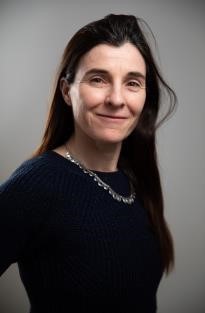ADD THESE DATES TO YOUR E-DIARY OR GOOGLE CALENDAR
This site is part of the Siconnects Division of Sciinov Group
This site is operated by a business or businesses owned by Sciinov Group and all copyright resides with them.
ADD THESE DATES TO YOUR E-DIARY OR GOOGLE CALENDAR

Univerity of Angers, France
Title:Can tourism favor women empowerment in tradition villages ? The case of Bali and Java (Indonesia)
Gender equality is one of the seventeen Sustainable Development Goals proposed at the 2015 U.N. Sustainable Development Summit. Yet the second edition of the Global Report on Women in
Tourism (UNWTO, 2019) reinforced concerns about tourism's ambiguous effect on gender equality. Even if women are predominant within the tourism sector at an international scale, subtle forms of discrimination continue to disadvantage women in their careers. Tourism thus becomes a stimulating laboratory in which to study gender relations today, notably in patriarcal societies.
The objective of this work is to examine the capacity of tourism to promote women's individual and collective empowerment within professional, family and community arenas, in traditional villages
in Bali and Java. We build an intercultural approach based on the collaboration between French and Indonesian researchers. We adopt a structuralist constructivist approach and employ a qualitativemethod.
We interviewed, from november 2021 to november 2024, 44 stakeholders (homestay andrestaurant owners, head of administrative village, head of traditional village, head of tourism
committee), among them 22 women and 22 men, in 5 tourist villages: Ubud and Blimbingsari (Bali)and Nglanggeran, Pentingsari and Samiran (Yogyakarta province in Java). Our results tend to
demostrate that tourism favor individual and collective empowement of women. Growing numbersof them have become business owners, even if in micro-business. The chance to bring in income has elevated women’s significance and self-esteem within their communities, where their opinions have become more valued. In minority, women may even have a leadership role in the tourism management of the village.
Definitly gender biais stay, especially in traditional community in which women remain under men's authority, but tourism favor structural changes in profesionnal and family arenas.
Sylvine Pickel-Chevalier is a full Professor in Geography at the ESTHUA, Faculty of Tourism, Culture and Hospitality, of theUniversity of Angers, France, Laboratory UMR CNRS 6590 Espaces et Sociétés. She specializes in studies relating to tourism in France and in Indonesia, questioning its potential as an agent of sustainable development and integrating gender issues. She published more than 25 articles and books about this subject, notably in: Annals of Tourism Research; Tourism Geographies; Espace Geographique, Teoros, or with Cambrige scholar publishing. She is directeurof the GIS (National group of research) Tourism Studies, associating 21 faculties and institutes of tourism in France